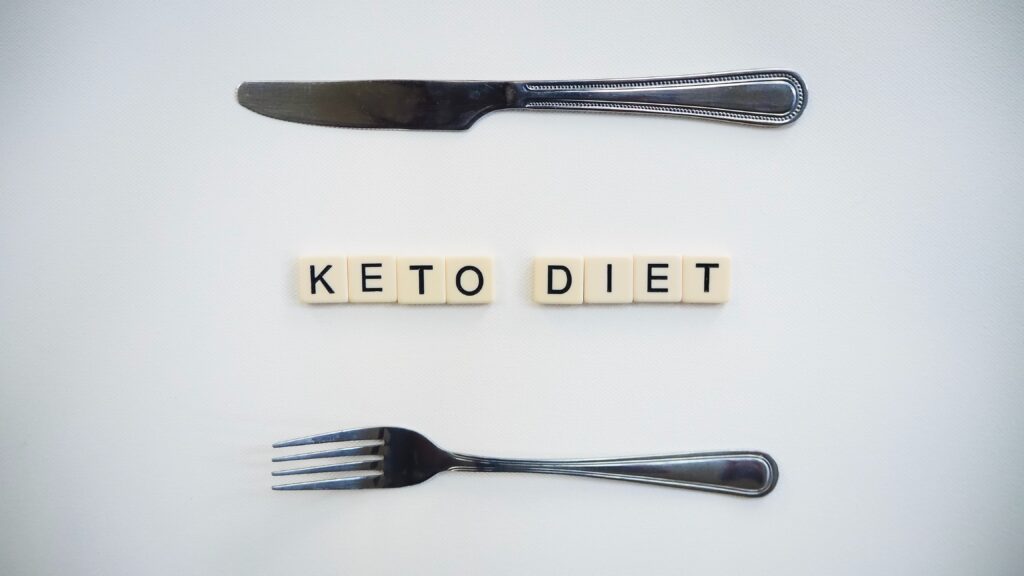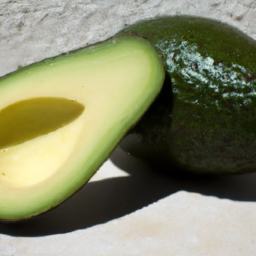Embarking on a keto diet can be an exciting and challenging journey towards achieving your health and weight loss goals. However, in order to make the most out of this popular low-carb, high-fat diet, it’s important to be aware of the common pitfalls that can hinder your progress. From neglecting electrolyte balance to incorrect fat and protein ratios, this article will guide you through the mistakes to avoid for optimal results on your keto diet journey.

Not planning meals properly
Skipping meal planning
One common mistake people make when following a keto diet is skipping meal planning. Without a proper meal plan, it becomes much more challenging to stick to the diet and make sure you are getting all the necessary nutrients. It’s important to take the time to plan your meals ahead of time, including breakfast, lunch, dinner, and snacks. By doing this, you can ensure that you have a variety of nutritious options available, and you won’t be tempted to reach for unhealthy choices when you’re hungry and unprepared.
Not tracking macros
Another mistake that many people make is not tracking their macros. The ketogenic diet relies on a specific ratio of macronutrients – high fat, moderate protein, and low carbs. To achieve and maintain a state of ketosis, it’s essential to track your intake of fats, proteins, and carbohydrates. Many individuals underestimate their carbohydrate intake or overdo their protein consumption, which can hinder progress or even knock them out of ketosis. Utilize a tracking app or journal to monitor your macros and ensure you’re staying within the appropriate ranges.
Not including enough variety in meals
One enjoyable aspect of the keto diet is the opportunity to experiment with various foods and flavors. However, some individuals fall into the trap of not including enough variety in their meals. It’s crucial to incorporate a wide range of vegetables, meats, and fats into your diet to ensure you get an array of essential nutrients. Explore different recipes and try new ingredients to keep your meals exciting and ensure you’re getting all the vitamins and minerals your body needs.
Relying too heavily on processed foods
Choosing processed keto-friendly snacks
While there are many delicious keto-friendly snacks available on the market, relying too heavily on processed options can hinder your progress. These snacks often contain artificial additives, unhealthy fats, and hidden carbs that can disrupt your ketosis and overall health. Instead, prioritize whole, unprocessed foods like nuts, seeds, and fresh vegetables as your go-to snacks. This way, you’ll nourish your body with wholesome ingredients while avoiding potential setbacks due to processed snacks.
Not prioritizing whole foods
In a similar vein, not prioritizing whole foods can be detrimental to your keto journey. While there may be convenient low-carb substitutes for your favorite carb-rich dishes, it’s crucial to focus on consuming whole, nutrient-dense foods. Opt for grass-fed meats, wild-caught seafood, organic vegetables, healthy fats like avocado and coconut oil, and nuts and seeds. By prioritizing whole foods, you enhance not only the nutritional value of your meals but also your overall health and well-being.
Not reading food labels carefully
When following a keto diet, it’s important to become a diligent food label reader. Some products marketed as “keto” may still contain hidden carbs or unhealthy ingredients. By not thoroughly reading food labels, you risk unknowingly consuming more carbs or unnecessary additives, which can hinder your progress. Look for products that have minimal ingredients, no added sugars or artificial sweeteners, and are free from unhealthy trans fats. When in doubt, it’s best to choose whole, unprocessed foods to ensure you’re making the best choices for your body.
Ignoring hydration needs
Not drinking enough water
Proper hydration is essential for everyone, but it’s especially crucial when following a keto diet. Many people neglect the importance of drinking enough water, which can lead to dehydration and a range of negative side effects. Water helps flush out toxins, aids in digestion, and supports overall bodily functions. Aim to drink at least eight glasses of water per day, and even more if you are physically active or live in a hot climate. Keep a water bottle with you at all times as a visual reminder to stay hydrated.
Not replenishing electrolytes
On a keto diet, your body undergoes changes in electrolyte balance due to the reduction in carbohydrates. Ignoring the need to replenish these electrolytes can lead to symptoms such as fatigue, muscle cramps, and headaches. To avoid these issues, make sure to consume foods rich in electrolytes, such as avocados, nuts, seeds, and leafy greens. Additionally, consider adding a high-quality electrolyte supplement to your routine, especially if you’re experiencing any symptoms of imbalance.
Overdoing caffeine intake
While moderate caffeine intake can be a part of a healthy keto diet, overdoing it can have negative effects. Excessive caffeine consumption can lead to dehydration and disturb your sleep patterns, which can negatively impact your overall well-being. Additionally, some individuals may experience increased cravings or jitteriness from too much caffeine. Be mindful of your caffeine intake and listen to your body’s signals. Opt for herbal teas or decaf alternatives when possible, and always prioritize quality sleep for optimal health.
Neglecting fiber intake
Not consuming enough fiber-rich foods
A common pitfall of the keto diet is neglecting to consume enough fiber-rich foods. Since the diet restricts high-carb fruits, grains, and legumes, individuals may inadvertently reduce their fiber intake as well. This can lead to digestive issues, constipation, and an imbalanced gut microbiome. To ensure you’re getting enough fiber, focus on including low-carb vegetables like broccoli, cauliflower, spinach, and kale in your meals. Additionally, supplementing with psyllium husk or other natural fiber sources can help maintain a healthy digestive system.
Not tracking net carbs correctly
Tracking net carbs is an essential aspect of a ketogenic diet, as it allows you to deduct the fiber content from the total carbohydrate count. Some individuals make the mistake of not tracking net carbs correctly, leading to unintentionally exceeding their desired carbohydrate limit. It’s crucial to familiarize yourself with the net carb content of the foods you consume and adjust your diet accordingly. This ensures that you’re staying within your desired carbohydrate range while still benefitting from the valuable fiber found in certain foods.
Ignoring the importance of gut health
Gut health plays a significant role in overall well-being, and neglecting it can hinder your progress on the keto diet. The low-carb nature of the diet can impact the diversity of your gut microbiome, affecting digestion and overall health. To support a healthy gut, incorporate probiotic-rich foods like yogurt, sauerkraut, and kimchi into your meals. Additionally, consider taking a high-quality probiotic supplement to optimize your gut health and ensure proper absorption of nutrients from your diet.

Eating too much or too little
Overeating high-fat foods
While the keto diet emphasizes high-fat foods, it’s important to remember that portion control still matters. Overeating high-fat foods can lead to an excess intake of calories, which can hinder weight loss or even cause weight gain. Focus on eating until you’re satisfied, not overly full, and be mindful of your portion sizes. Opt for healthy fats like avocados, olive oil, and nuts, but keep in mind that they are still calorie-dense and should be consumed in moderation.
Not consuming enough healthy fats
On the flip side, some individuals may not consume enough healthy fats on a keto diet. Healthy fats are a crucial source of energy and help keep you feeling full and satiated. If you’re not consuming enough healthy fats, you may experience increased cravings, low energy levels, and difficulties sticking to the diet. Include sources of healthy fats such as avocados, coconut oil, nuts, and seeds in your meals to ensure you’re getting the necessary fuel for your body’s needs.
Caloric restriction
While the keto diet can be effective for weight loss, it’s essential to strike a balance and avoid excessive caloric restriction. Severely restricting calories can lead to nutrient deficiencies, metabolic adaptations, and potential burnout. It’s important to find a caloric intake that supports your body’s needs while still creating a calorie deficit for weight loss if desired. Consulting with a healthcare professional or registered dietitian can help you determine the right calorie range for your individual goals and needs.
Lack of proper supplementation
Not supplementing with electrolytes
As mentioned earlier, replenishing electrolytes is crucial on a ketogenic diet. Unfortunately, many individuals neglect proper supplementation and underestimate the impact of electrolyte imbalances. To support optimal health and avoid symptoms like fatigue and muscle cramps, consider supplementing with electrolytes such as magnesium, potassium, and sodium. These can be found in specialized electrolyte supplements or obtained through natural sources like avocados, leafy greens, and salt.
Neglecting omega-3 fatty acids
Omega-3 fatty acids are essential for overall health, including brain function, heart health, and inflammation regulation. Neglecting to incorporate omega-3-rich foods or supplements into your diet can hinder your progress on the keto diet. Include fatty fish like salmon, mackerel, and sardines in your meals, or consider taking a high-quality omega-3 supplement. This will ensure you’re getting the valuable omega-3 fatty acids your body needs to thrive.
Not addressing nutrient deficiencies
Following a restrictive diet like keto can increase the risk of nutrient deficiencies if not properly managed. Neglecting to address these deficiencies can lead to various health issues and hinder your progress. It’s essential to consult with a healthcare professional or registered dietitian to assess your nutrient needs and potentially undergo blood tests to identify any deficiencies. Based on these results, you can adjust your diet or incorporate targeted supplements to ensure you’re meeting your body’s requirements.

Inadequate adjustment period
Not allowing for a proper adaptation phase
When starting a keto diet, many individuals expect immediate results and may not allow for a proper adaptation phase. The body needs time to adjust to utilizing fat as its primary fuel source instead of carbohydrates. During this adaptation period, you may experience symptoms commonly known as the “keto flu,” including fatigue, brain fog, and sugar cravings. It’s crucial to be patient and allow your body the time it needs to adapt fully. This period usually lasts a few weeks but may vary from person to person.
Not recognizing the temporary side effects
During the adjustment period and even beyond, it’s important to recognize that certain side effects may occur temporarily. As your body adapts to using fat for fuel, you may experience changes in digestion, sleep patterns, or mood. These side effects are usually temporary and subside as your body becomes more efficient at using ketones for energy. Listening to your body’s cues, being patient, and giving yourself the space to adapt are key factors in maximizing your success on a keto diet.
Expecting immediate weight loss results
Weight loss is a common motivation for starting a keto diet, but it’s important to have realistic expectations. While some individuals may experience rapid weight loss initially, others may have a slower progress rate. It’s essential to understand that sustainable weight loss takes time and patience. Focus on the non-scale victories, such as increased energy levels, improved mental clarity, and better overall health. Trust the process and remember that the scale is only one measure of success on your keto journey.
Ignoring the importance of exercise
Not incorporating exercise into the routine
Exercise is a crucial component of a healthy lifestyle, and it shouldn’t be overlooked when following a keto diet. Some individuals make the mistake of solely focusing on their dietary changes without incorporating regular physical activity. Exercise not only helps with weight management but also supports cardiovascular health, muscle strength, and overall well-being. Aim for a combination of cardiovascular exercises, strength training, and flexibility exercises to keep your body strong, healthy, and functioning optimally.
Neglecting strength training
While any form of exercise is beneficial, neglecting strength training can hinder your progress on a keto diet. Strength training helps build and preserve lean muscle mass, which is essential for maintaining a healthy metabolism and promoting fat loss. Incorporate resistance exercises using weights, resistance bands, or bodyweight to ensure you’re giving your muscles the attention they deserve. This way, you’ll not only improve your body composition but also support your long-term weight and health goals.
Overtraining or undertraining
Finding the right balance with exercise is crucial on a keto diet. Some individuals may fall into the trap of overtraining, pushing themselves too hard and not allowing for proper recovery. Overtraining can lead to fatigue, increased cortisol levels, and potential muscle loss. On the other hand, undertraining may not provide enough stimulus for desired changes in body composition or overall fitness. It’s important to listen to your body, allow for adequate rest and recovery, and find a workout routine that suits your goals and preferences.
Poor stress management
Neglecting stress-reducing techniques
Stress management is essential for overall well-being, and neglecting it can hinder your progress on a keto diet. Stress triggers the release of cortisol, a hormone that can impact your blood sugar levels and potentially hinder your ability to enter or maintain ketosis. Incorporate stress-reducing techniques into your daily routine, such as meditation, deep breathing exercises, yoga, or engaging in hobbies or activities that bring you joy. By prioritizing stress management, you not only support your keto journey but also enhance your overall quality of life.
Emotional eating and cravings
Emotional eating is a common struggle for many individuals, especially when following a strict dietary plan like keto. Stress, boredom, or other emotions can trigger cravings for high-carb, comfort foods, which can derail your progress. It’s important to be aware of your emotional eating triggers and develop healthier coping mechanisms, such as journaling, seeking support from loved ones, or engaging in regular physical activity. By addressing emotional eating patterns, you’re setting yourself up for long-term success on your keto journey.
Lack of sleep
Sleep is often undervalued but plays a crucial role in overall health and well-being. Lack of sleep can disrupt hormonal balance, increase cravings, and negatively impact your ability to stick to a keto diet. Aim for seven to nine hours of quality sleep per night by establishing a relaxing bedtime routine, creating a dark and quiet sleep environment, and practicing good sleep hygiene. Prioritizing sleep allows your body to rejuvenate and helps support optimal physical and mental health.
Neglecting the mindset aspect
Focusing solely on the scale
One significant pitfall that individuals may encounter on a keto diet is solely focusing on the number on the scale. While weight loss may be a goal for many, it’s important to remember that progress goes beyond mere numbers. The keto diet offers numerous benefits beyond weight loss, such as improved energy, mental clarity, and overall health markers. Shift your mindset to focus on your overall well-being and the positive changes you’re experiencing, both internally and externally.
Not setting realistic goals
Setting realistic goals is essential for success on any dietary plan, including keto. While it’s natural to be motivated and ambitious, setting unattainable or overly strict goals can lead to frustration and disappointment. Instead, set realistic, achievable goals that align with your individual circumstances and desired lifestyle changes. Celebrate your accomplishments along the way, regardless of scale numbers, and remember that sustainable progress takes time and consistency.
Lacking patience and perseverance
Patience and perseverance are key virtues when it comes to following a keto diet. It’s important to understand that everyone’s journey is unique, and sustainable results take time. Some individuals may experience rapid weight loss, while others may progress more slowly. Embrace the process, focus on sustainable habits, and stay committed to your goals. Even during times of plateaus or challenges, trust in your ability to adapt, make adjustments as needed, and continue moving forward with determination and resilience.
In conclusion, understanding and avoiding these keto diet pitfalls can help ensure optimal results and long-term success. By properly planning meals, incorporating whole foods, staying hydrated, prioritizing fiber intake, and embracing a balanced approach to exercise, stress management, and mindset, you’ll be well-equipped to navigate the keto diet with confidence and achieve your health and wellness goals. Remember to listen to your body, seek guidance from professionals when needed, and celebrate the sustainable progress you make along the way. Here’s to your journey towards a healthier, happier you on the keto diet!


